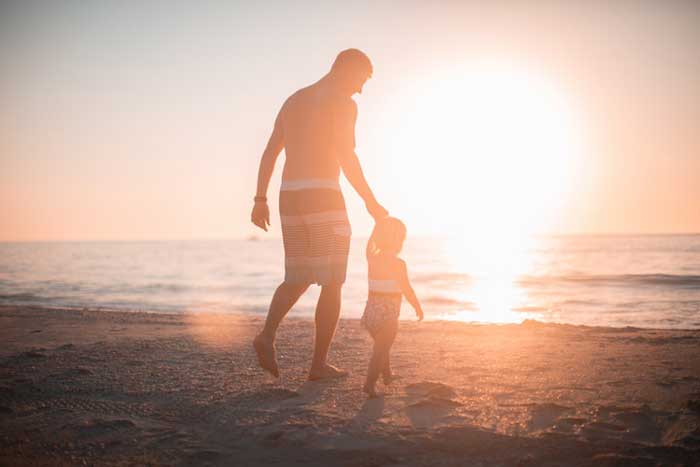Knowing This Could Save Your Child’s Life
May 25 was the Day of Missing Children. On this occasion and on the eve of the start of the vacation and swimming season, we remind you of the main safety rules in the forest and on the water. Let’s also talk about what to do if the child is missing.
Forest safety rules
Do not let children go to the forest with elderly relatives. The elderly are not the most reliable companions of children. If they feel unwell, the child will not be able to help them, and if children run to seek help, it is unknown what they may face in the forest.
Be sure to tell exactly where you are going. At least some kind of landmarks: for example, after refueling, you entered the forest and turned right. Search squads spend a lot of valuable time just to determine the entry point into the forest.
Tell the loved ones when you are planning to return from the forest. If you go for three hours and do not come back after three hours, your relatives can realize that something has happened to you and take action without wasting time.
If you get lost, stay where you are. You have already lost your way and will not find it on your own. Just stay where you are – it will be easier to find you.
Call the emergency number 112.
What you need to take with you to the forest
A charged phone. You cannot go into the woods with a discharged phone — especially with a child. A charged power bank with a wire (and even better with a solar battery) will also be useful.
Matches and the supply of water because the water you can find in the forest is dangerous. If a child is lost alone in the forest and does not have a bottle of water with him, he may come to drink from a puddle or fall into a swamp.
Bright clothes. Men are fond of going to the forest in camouflage. For rescuers, people in camouflage are inconspicuous. You need to go to the forest in bright clothes, ideally with reflectors, so that even in the dark you can be detected with a flashlight from a long distance.
Take a compass with you, if you know how to use it. In any case, when you go into the forest, remember the reverse azimuth. If you went north, then you will need to return back to the south. Remember that the compass is not always a reliable thing: magnetic anomalies happen, and a deviation of the arrow even at 10 degrees will be critical.
Whistle. When you are asked to respond, you may lose your voice, and you will need to make some noise to answer the call. If you cannot whistle, knock on the tree with a stick: such a noise is heard very well. The main thing is to respond.
Water safety
In the summer, there are too many calls about missing children, which start with an introductory sentence: “We were on the beach, and the child was last seen near the water.” The outcome of such situations is usually sad.
If you are in the water, your child should also be in the water. If you are on the beach, your child should be on the beach. A child on the beach should always be next to an adult – and nothing else. Many parents relax, knowing that their child can swim, but you still need to keep track of all the children. Anything can happen – a muscle cramp, a sunstroke, etc. – and then you can get drowned.
Do not leave children under the supervision of an older child.
A child must have a life jacket in the boat – even if you have sailed a hundred times without a vest, and it seems to you that nothing will happen. An adult must also have a life jacket so that he can help the child. Anything can happen: the wind may blow, the boat may be turned over.
Remember: people drown quickly, people drown silently. People do not drown as it is shown in movies. When a person emerges above the water, he cannot shout. The first thing the person does is breathing in some air before going underwater again. This happens very quickly. And really very quiet.
What to do if a child is missing: instructions
- First of all – go to the police. There is a common myth about three days that must pass before the police can accept your statement. This is not true.
Call the volunteers in your city and leave a request. - Notify everyone about the emergency. Relatives, friends, distant relatives, acquaintances, former husbands/wives, former mothers-in-law. Often, parents think that the child does not communicate with someone from their former relatives, for example, their ex-husband. But in fact this is not always right.
 Perhaps the child went to your friends to another end of the city because in a stressful situation he remembered that you visited them last week. This address popped up in his mind, and he just went there.
Perhaps the child went to your friends to another end of the city because in a stressful situation he remembered that you visited them last week. This address popped up in his mind, and he just went there. - Remember: there are no inconveniences. It’s okay if the child is found in half an hour and the alarm turns out to be false. It will be “inconvenient” if the child does not come back home by the evening or the next day. You will lose precious time allotted for the search.
The first hours are usually the most successful ones in order to find the child alive and safe.
Inform all your friends – even if you have to call them back soon to thank them, apologize for the anxiety and report that the child has been found!




